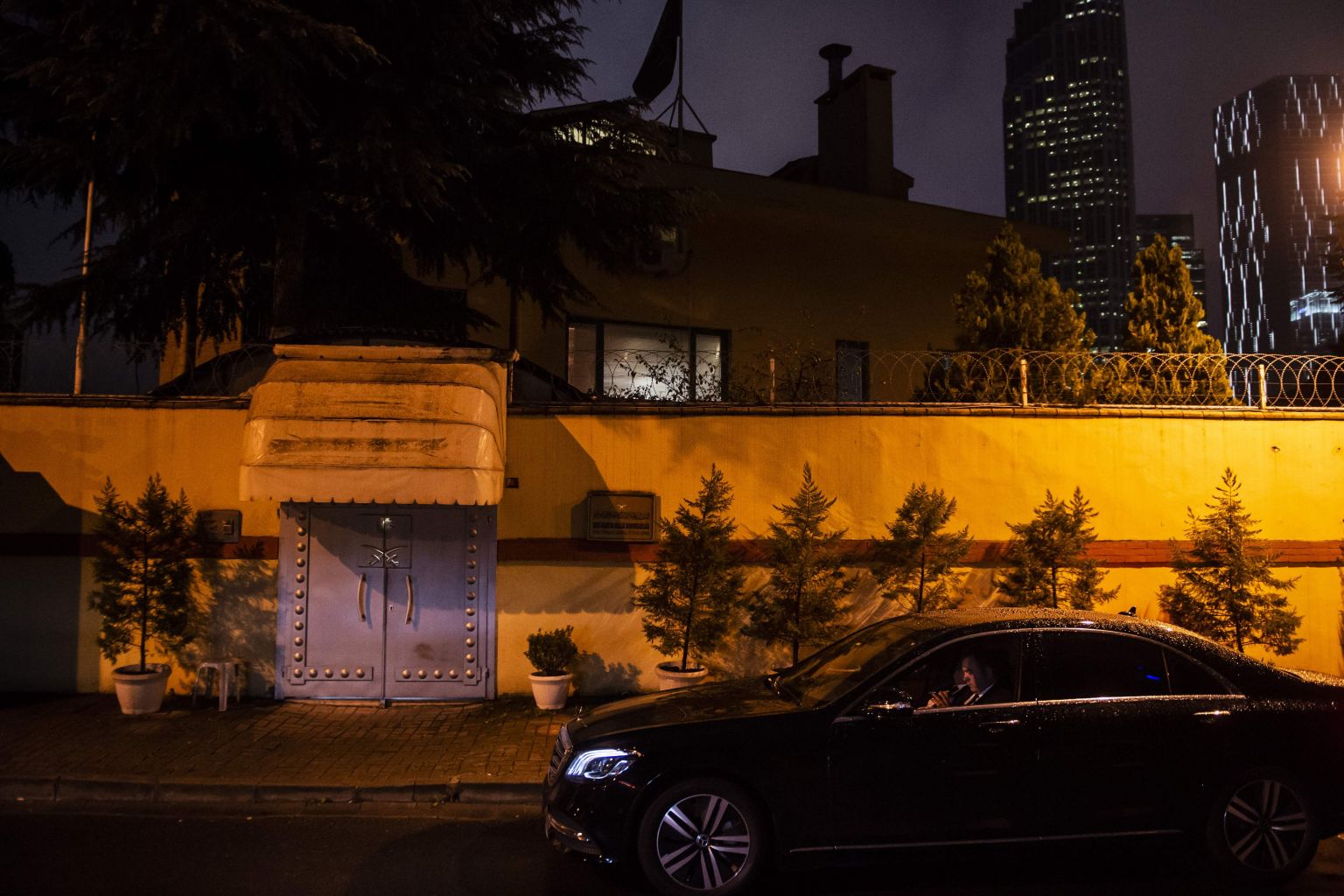Why Turkey can't search Saudi consulate for missing journalist Khashoggi
Sign up now: Get ST's newsletters delivered to your inbox

A security staff member guards the entrance of the Saudi Arabian consulate in Istanbul, on Oct 11, 2018.
PHOTO: AFP
WASHINGTON (WASHINGTON POST) - More than a week ago, Saudi dissident journalist Jamal Khashoggi stepped inside the Saudi consulate in Istanbul to pick up some paperwork. His fiancee says he never came out.
Turkish officials have said that the journalist was killed inside and dismembered by a "murder squad", flown in from the kingdom for this express task. Some sources have suggested that Turkish officials managed to collect audio or video evidence capturing the moment of Mr Khashoggi's death.
But so far, they have declined to search the consulate or arrests any Saudi officials. That's because of a set of international laws governing how host countries behave towards embassies.
Embassies and consulates occupy a curious space.
Though they live on land belonging to their host nation, the 1961 Vienna Convention on Consular Affairs lays out clear rules for how a host country can behave.
Under international law, police and security officials cannot enter an embassy without the express permission of the ambassador.
Consular bags - special pouches that require a seal and can contain private paperwork, communications or other goods from the diplomatic embassy, consulate or consulate residence - are not to be opened by the host nation.
The convention also requires missions to respect local laws, and embassies are expected to stay out of host nations' internal affairs.
Host nations do have the authority to revoke consular clearances for embassy staff and can revoke their immunity, effectively forcing them to leave.
Countries follow these rules because of the "rule of inviolability" - they want their embassies and consulates treated fairly, and the only way to guarantee that is to follow these rules when they are hosting diplomatic missions.
These rules - and arguments about what they really mean - have played a key role in several diplomatic crises over the years.
Soon after WikiLeaks founder Julian Assange took refuge in Ecuador's embassy in London in 2012, British officials floated the idea of forcing entry into the building to seize him. (An arrest warrant had been issued.)
The British Foreign Officer argued that it had the right to revoke the embassy's diplomatic status under the country's Diplomatic and Consular Premises Act, passed in 1987.
That rule was passed in the wake of the murder of Ms Yvonne Fletcher, a British police officer who was shot in 1984 while monitoring an anti-Muammar Gaddafi protest outside the Libyan embassy.
The gun that killed her was fired from within the embassy, though the killer was never identified. In the days that followed, British forces seized the embassy, expelled those inside, and severed relations with Libya.
Ecuador, however, argued that revoking diplomatic status would be a major violation of its autonomy.


